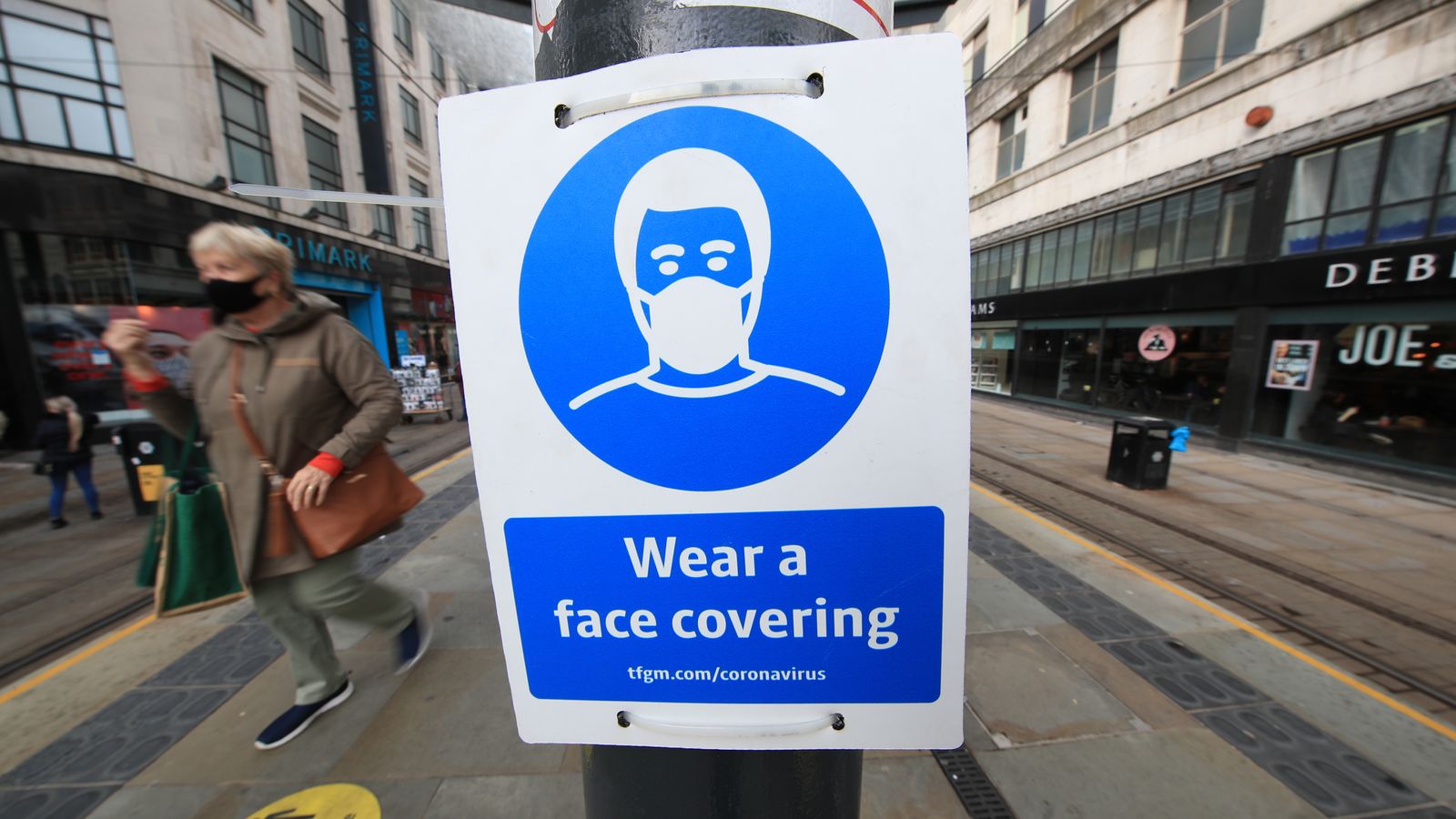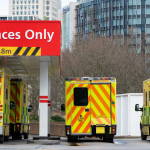A total of 600 people in the UK have now contracted the South African coronavirus variant, new figures show.
An extra 56 cases were reported this week and although Public Health England (PHE) has not provided a geographical breakdown of where these are specifically, but does say 524 are in England.
Live COVID updates from across the UK and around the world
Please use Chrome browser for a more accessible video player
In the past few days, three large boroughs of London have been the spotlight of COVID surge testing.
Health officials tested around 650,000 people and it was reported “dozens” of cases of the South African variant were found in Wandsworth and Lambeth.
The figures released today would not have included any instances of the variant found in the surge testing – as it takes a few days for results to be confirmed.
The news comes as a coronavirus variant with a “double mutation” was detected in the UK after having first emerged in India.
A total of 77 cases of the variant, known as B.1.617, have been found across the country – 73 in England and four in Scotland – in the days leading up to 14 April, the latest update from PHE revealed.
The strain is of particular concern because it features two mutations in the spike protein combined in the same virus, prompting fears it may be more infectious or less susceptible to vaccines.
Subscribe to the Daily podcast on Apple Podcasts, Google Podcasts, Spotify, Spreaker
It has been classified as a “variant under investigation”.
Paul Hunter, professor in medicine at the University of East Anglia, said the discovery could be cause for significant concern.
Explainer: The COVID variant threat
“These two escape mutations working together could be a lot more problematic than the South African and Brazilian variants who have only got one escape mutation,” he told The Guardian.
“It might be even less controlled by vaccine than the Brazilian and South African variants.”
India reported a daily increase of 217,353 infections over the last 24 hours, the country’s second record in consecutive days.






















